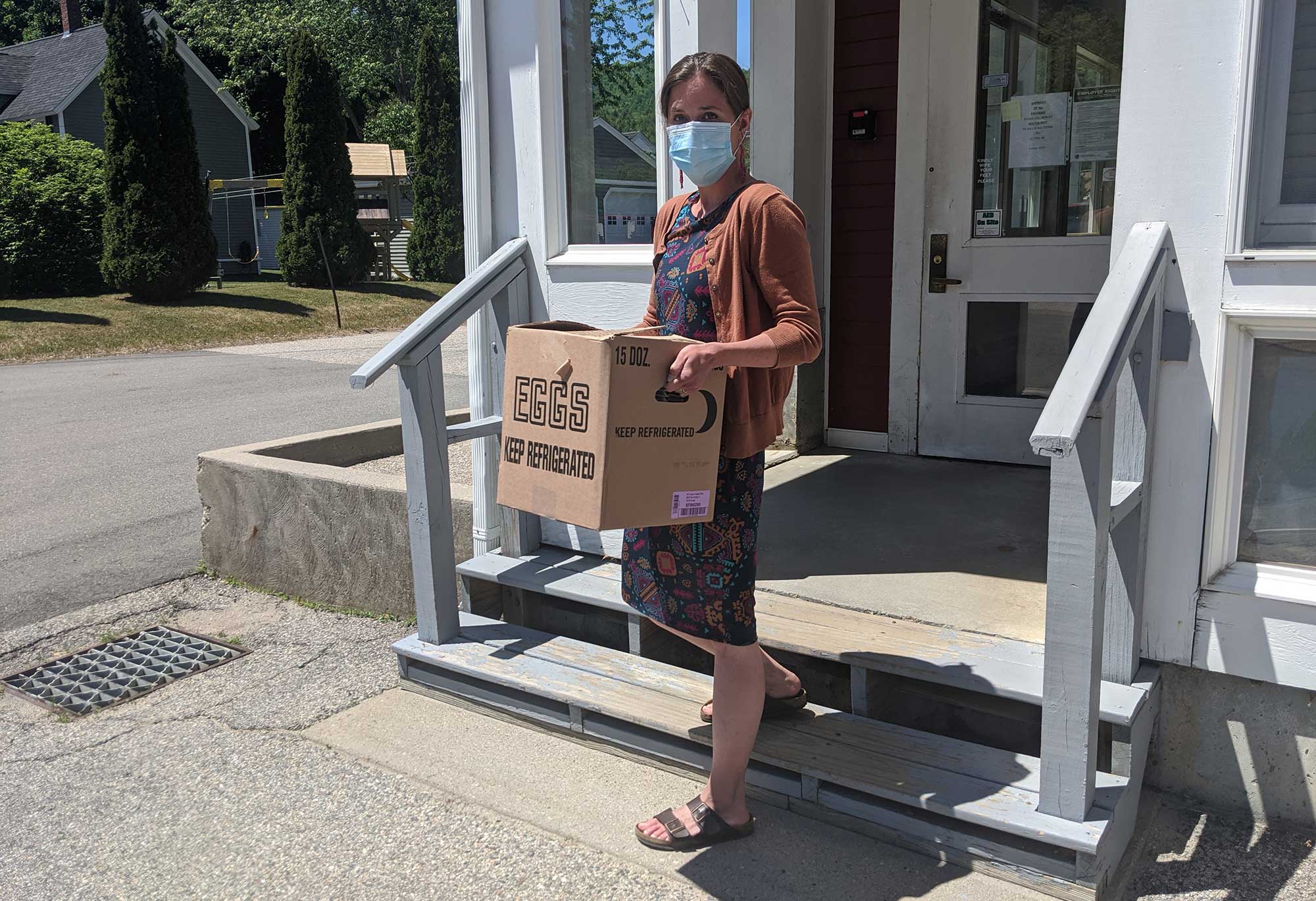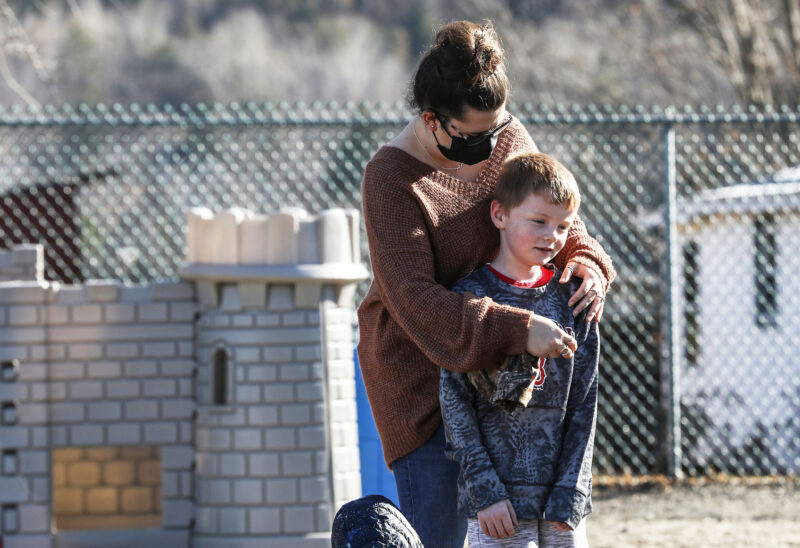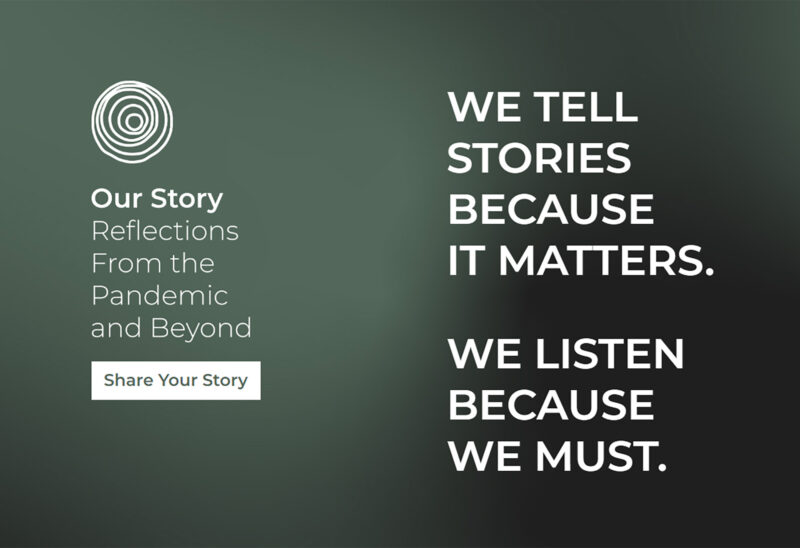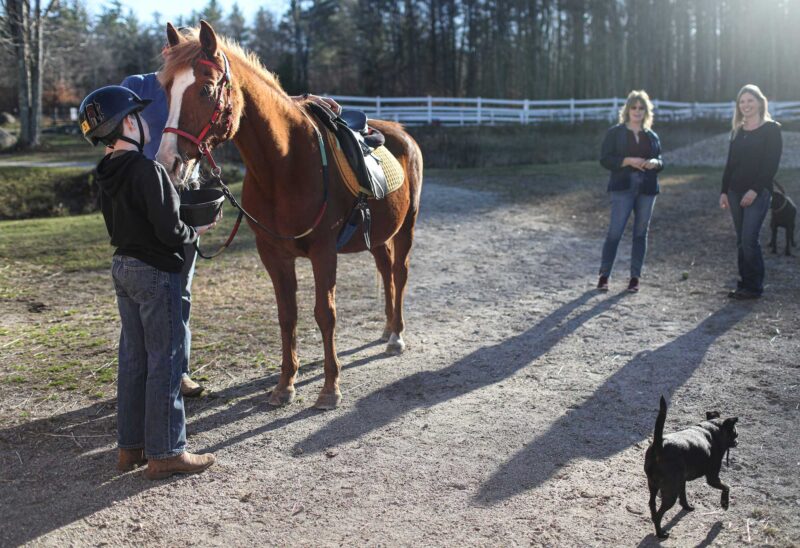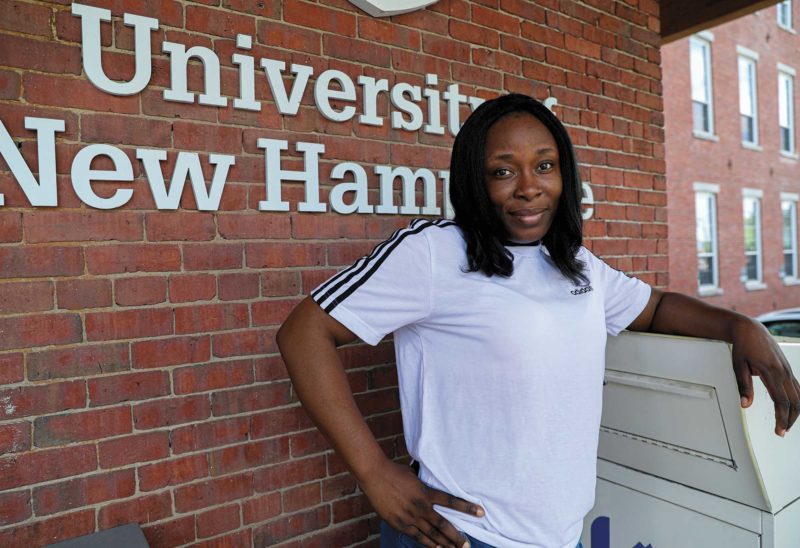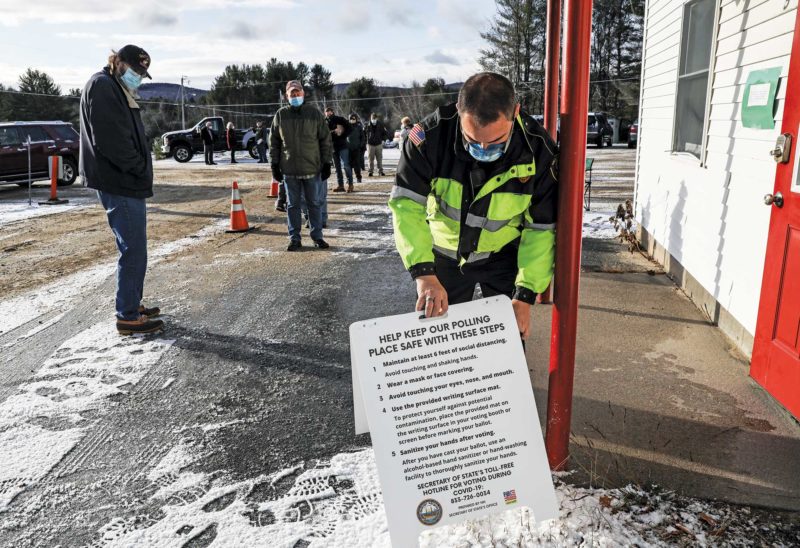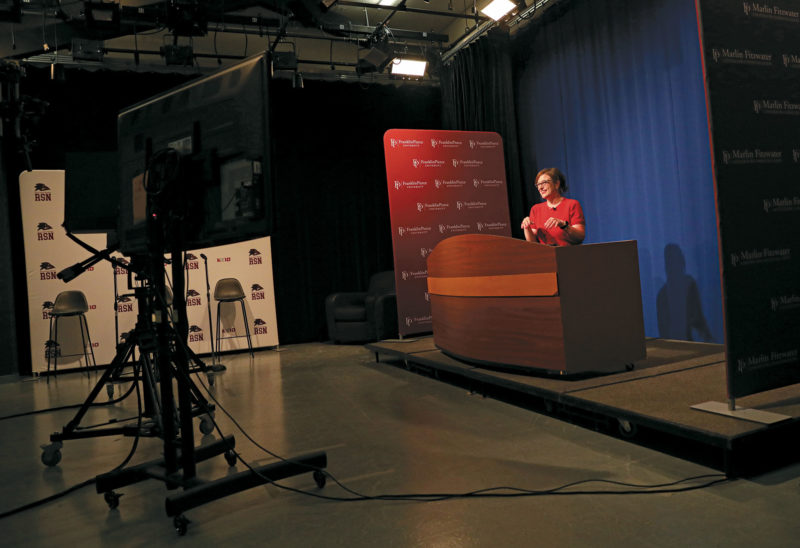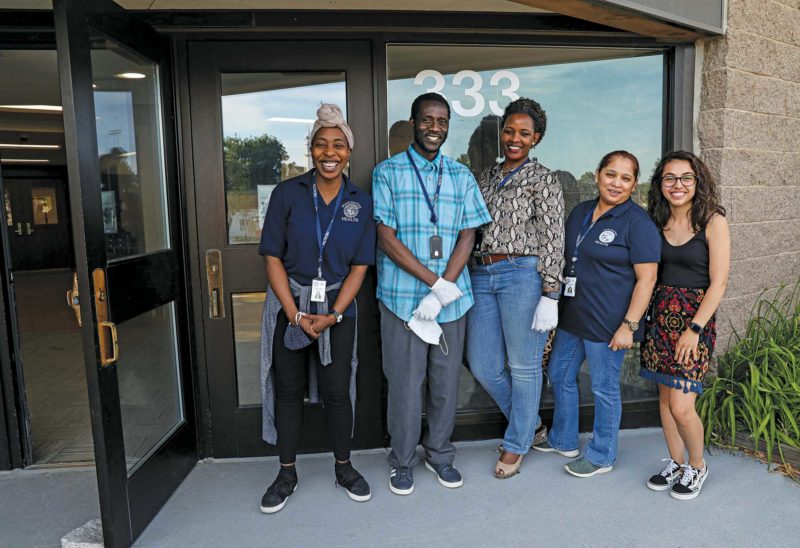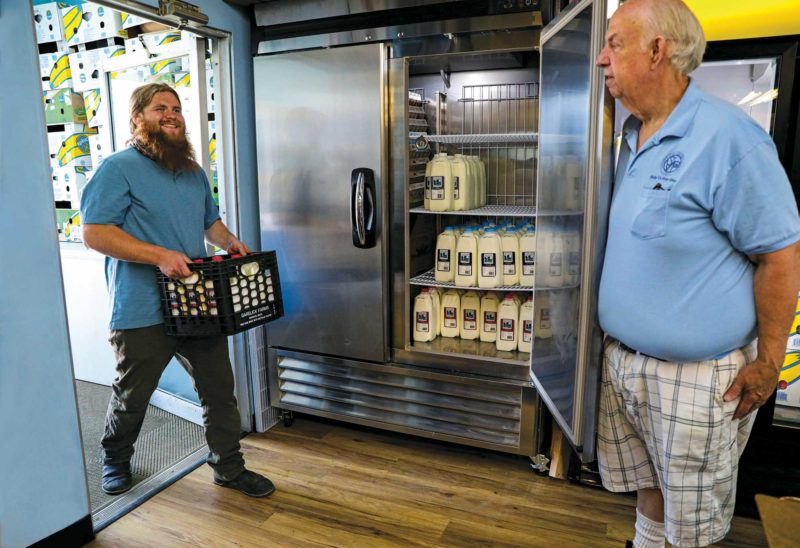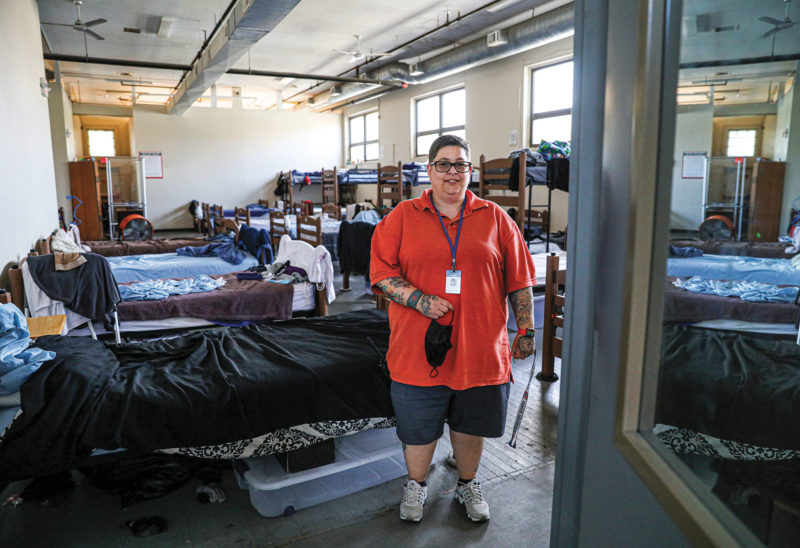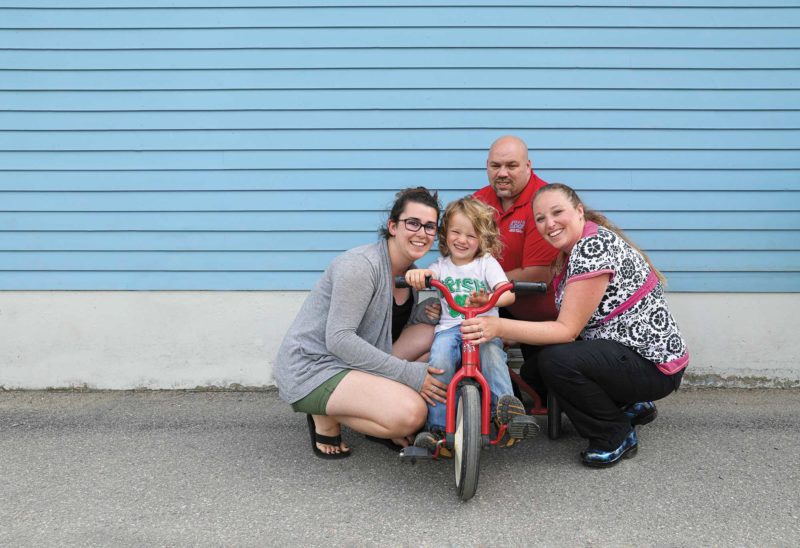Family resource centers support some of the state’s most vulnerable families: People who are struggling, often against significant odds, to build stable and successful lives for themselves and their children.
When the COVID-19 pandemic hit, it hit those families’ lives with an overwhelming tangle of complication and peril. A single mom with small children and no car suddenly had no safe way of getting any groceries. Stressed children were suddenly isolated from friends, teachers and school-based services. People who were already just scraping by were out of work entirely.
Family resource centers around the state have risen to the moment.
In Gorham, the Family Resource Center adapted everything from after-school programming to parenting support and family visitation to be able to continue to provide services remotely.
And staff mobilized immediately to help meet basic needs.
When that organization’s building had to be closed to the public, its tiny food pantry, which had previously been housed in a closet, was transformed into a mini-warehouse for canned goods, diapers and other non-perishables that filled an entire large room. Since the center had no large freezer, staff and community members offered up their own freezers, from Gorham to Lancaster to Berlin to Littleton, where perishable food could be safely stored before being donated.
Boxes were filled, with meals enough for a week, and delivered to doorsteps.
When many nonprofits were in the position of having to lay people off, the center had to hire someone to coordinate the pantry and distribution.
The center made sure clients had minutes added to phone plans, so they could reach out for support. They delivered gas and grocery cards along with food and supplies.
One family support worker at the center told the story of a single mom who was incredibly grateful to get minutes added to her phone so she could connect with her “family from FRC,” said Executive director Patti Stolte. “But when she realized her home visitor left a box on her porch with diapers, supplies and food she broke down and said it made her feel like she was not alone. It also gave one exhausted staff member renewed strength. That’s only one story of many.”
The center has kept its “Strength to Succeed” parenting and recovery support and “Growing Great Kids” prenatal and infant development programs operating remotely — which meant they needed to distribute tablets and phones to people who did not have technology needed to connect.
Ditto with the Gorham Family Resource Center’s after-school program, which they kept going remotely when schools shuttered — helping kids with homework, working with teachers to make sure the program complemented their efforts, and dropping off materials for projects on children’s doorsteps. The after-school program also filled some critical gaps for children, like connecting them with behavioral health services to assist with the stress of being out of school and isolated from friends, mentors and routines.
Now, the center is working on its summer program. One of its planned activities for kids: gardening. Gardening kits with seeds are being delivered so kids can grow their own small gardens.
The New Hampshire Charitable Foundation, Granite United Way and AHEAD have all supported the Gorham Family Resource Center’s emergency efforts during the public-health crisis.
Other family resource centers around the state have also received grants from the Foundation’s Community Crisis Action Fund, which was opened in March to respond to increased community needs due to the COVID-19 pandemic. Grants helped family resource centers from Tilton to Peterborough and Antrim to Nashua and Derry cover everything from groceries and gas to heating fuel and rent as those centers helped vulnerable families manage during the pandemic. The Foundation is also helping 10 of the state’s family resource centers strengthen their ability to deliver services by supporting a year-long program of customized training and technical assistance, coaching and a learning collaborative.
“Family resource centers are such important hubs of community support,” said Christina Lachance, Foundation director of early childhood and family initiatives. “During this public-health crisis, they have been flexible, adaptive and tenacious in continuing to deliver on their important missions.”
Stolte said her staff did not entertain a single thought of how something “couldn’t” be done — they just figured out how to make sure things got done for families. Many staff — who have children of their own at home, and were juggling remote learning and working from home — have worked with families for months and years, she said, “and they were determined not to see them fall back. Watching how creative and collaborative they were, it was so motivating and inspiring. We’re doing it — with zeal.”
And, she said, the community and grant support “propelled us,” giving the Family Resource Center staff the feeling that “everyone’s behind us.”
Family resource centers around the state rely on community support, and need help now more than ever. To find and donate to a family resource center in your area, click here.

